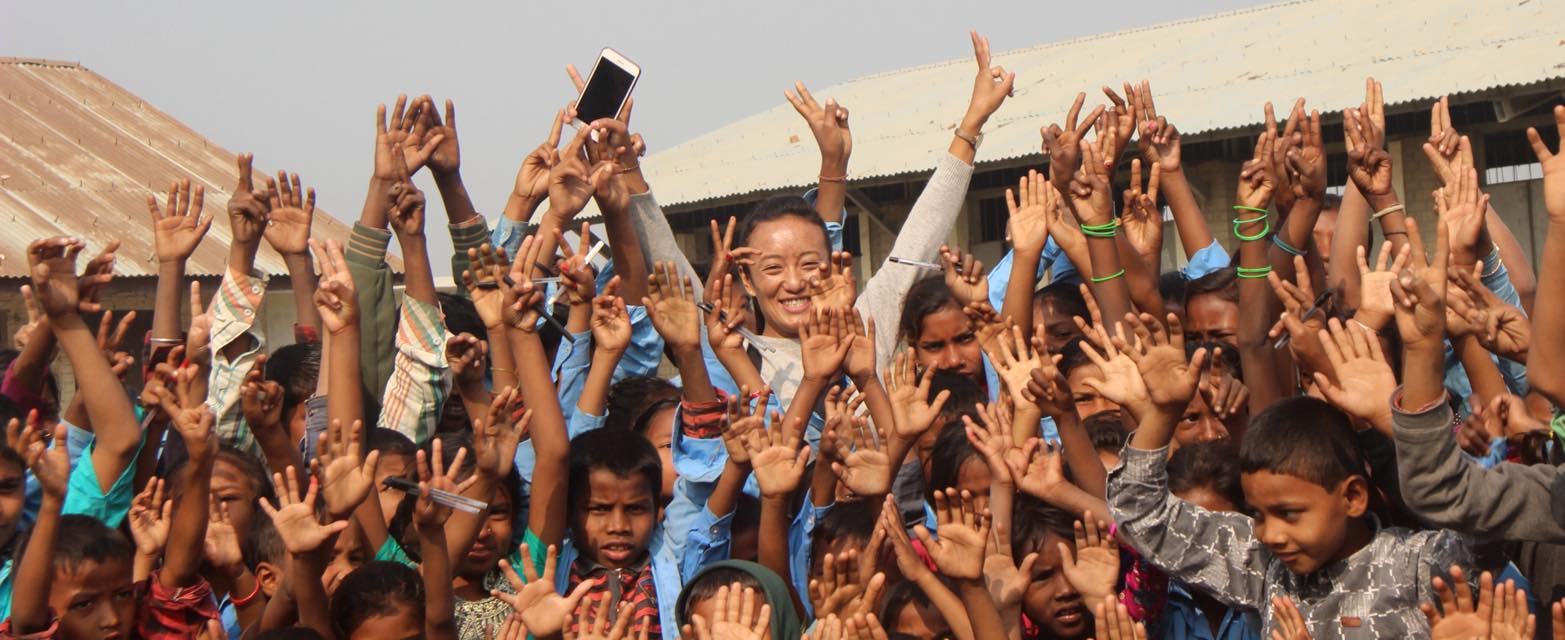People’s Trust on Me Keeps Me Going – Sarita Gurung, Social Worker, SOCIAL CHANGEMAKERS BLOG ISSUE NO.8
“Social media like FB/Twitter can be more than just a way to connect with our friends and family, it also can be used as a platform to connect the people who need help and people who want to help to each other,” says Sarita Gurung. Sarita Gurung is a philanthropist, social worker from Kaski who has a foundation based on her own name (Sarita Gurung Foundation) that works as a mediator to collect funds from Facebook/Twitter and donates these to needy people. She is also a youth motivator. Catalyst talked to her this week about her life journey as a youth social worker.
Tell us about your initiative and its mission?
It has just been a year that we have registered the NGO. I took the initiation back in 2012 with my friends and family to raise money for underprivileged people. After Facebook was introduced to me, I saw it as an opportunity for me to connect the ones that need help and the ones that want to help and make my idea a reality. Now, including me, there are a total nine members working in the firm. Our principal goal is to help 100 out of 100 people, who are seeking any sort of help by giving whatever we can whether financially or in kind or just by being supportive of what they are doing. But currently, our team is focused on education in remote areas in Nepal.
How did you come up with the idea of establishing the NGO?
I grew up seeing my mother working as a social health worker and she was my first inspiration to serve people in need. In 2005, I and a few of my friends took an old man with no family to the old aged home at Pashupatinath, Kathmandu. And after that experience, I felt like “bang”, this is it, this is what I want to do. It was that simple for me. Then I decided to study sociology as my undergraduate degree. This journey, my work, and people’s suggestions lead me to establish the NGO.
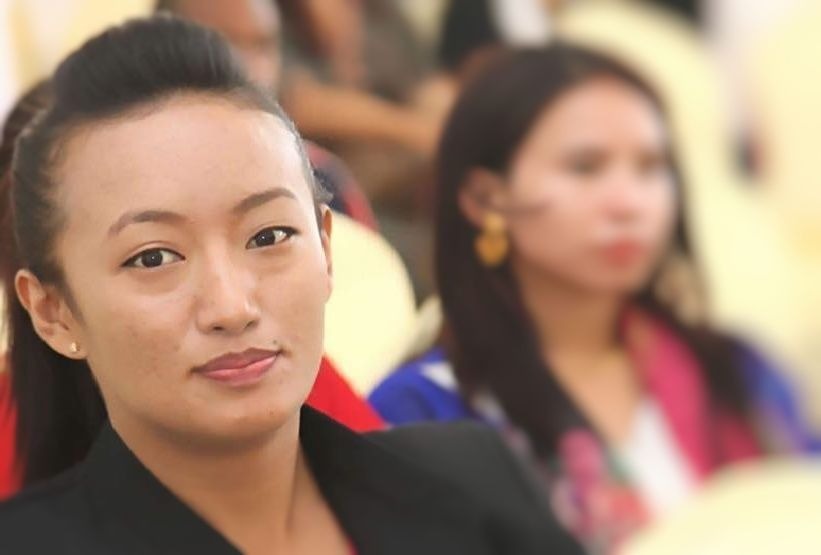
How do you target these groups? What it feels like helping them?
Every day we meet different people around with different stories and their everyday struggle, it could be about paying hospital bills or getting textbooks or anything that makes their life hard. I pray to lord every day that nobody has to go through a hard time. But if anybody around us is going through such time or is in need of some sort of help, our team tries to help them ease their struggle. Social media and print media have helped a lot to reach as many as possible. They publish articles when somebody is in need and we collect help. We first try to get to know about the person by verifying if they really are in need. Then we prepare an image with their photo and help message. And when we finish collecting the funds, we reach out to them and hand these over. In the end, the best part comes. The way they react with eyes filled with tears of utmost happiness is heaven on earth. Their blessings and the tears of happiness have kept me motivated to continue the journey of helping people.
How did you come up with the idea of raising funds through social media like Facebook/Twitter?
Nowadays, many people are into social media, it has been a part of our daily life. Many Nepali people living in different parts of the world are connected through different social media. And they care and react to even the small happenings back in Nepal. So, I thought, it would be a little easy to spread the message and idea in a short time with a large population and interested people can contribute to it. And that approach is working perfectly to date.
How do people react when you approach them to collect the fund? Why should people donate your foundation?
Sarita Gurung Foundation is all based on constant trust and effort of people and our team. For why people should donate our foundation, I’ll let our past work explain it all. Maybe that is the reason why people are happily donating us. We are just the mediator for the donor and the donation receiver. All we do is a post in online about the one in need, what sort of help they need and why they need. As I said before, just an image with this information does everything. Helping hands come forward searching us. Another reason why they donate to us is because we are transparent. We post each and every update online so that people can be assured their donation is not going elsewhere.
What has been the impact of your work?
About 2 weeks ago we were able to collect almost 2 lakhs in 20 days through social media for a kidney patient. Months back we handed a house worth 14 lakhs to a man who had been in coma for a long time. Terai region of Nepal suffered from the flood last year and went through a massive loss. To help people at that time, our team collected help to provide them immediate assistance materials. Comparatively these days we are receiving a lot more good responses and help from people living in different parts of the world than in the past. I would say there is still a lot more to cover in terms of helping people. We have successfully completed more than 30 of such campaigns since our establishment.
Tell us about something you are particularly proud of or your major successes or accomplishments in your fieldwork?
I am proud of each and every help I am able to provide to the public. Every work makes me smile and do better in future. But there is an incident that is close to my heart and gives me a weird feeling every time it crosses my mind. Dr. Chitra Wagle, who was one of the most loved doctors in rural communities of Nepal, suffered from appendix cancer, we could help him with Rs.95000 for his treatment. I had a little conversation with him over the phone and his last words, ‘despite being a stranger, you are helping me from your heart. I served my country when I was able, but it turned its back to me when I needed it the most. But I don’t complain, at least I could know you for that reason’ His voice still echoes in my ears. He wanted to meet me after coming back. But, unfortunately, he never returned back and we couldn’t meet. That’s makes it different from the rest of the cases and made me think for a while.
You have traveled to different parts of Nepal to distribute books and other assistant materials. How has this journey shaped your understanding the people and societies of Nepal? Is it different than you used to think before?
People living in different parts of Nepal have different cultures, but they have one thing in common in that they all are innocent and kind. It’s just the matter of time and how you see them or expect them to be, whatever you read in the paper isn’t hundred percent correct. And people who need help don’t belong to one community or ethnic group only. Help should first come for humanity.
You are standing as the bridge between people who want to donate money and people who need the assistance materials. As the person standing in between, do
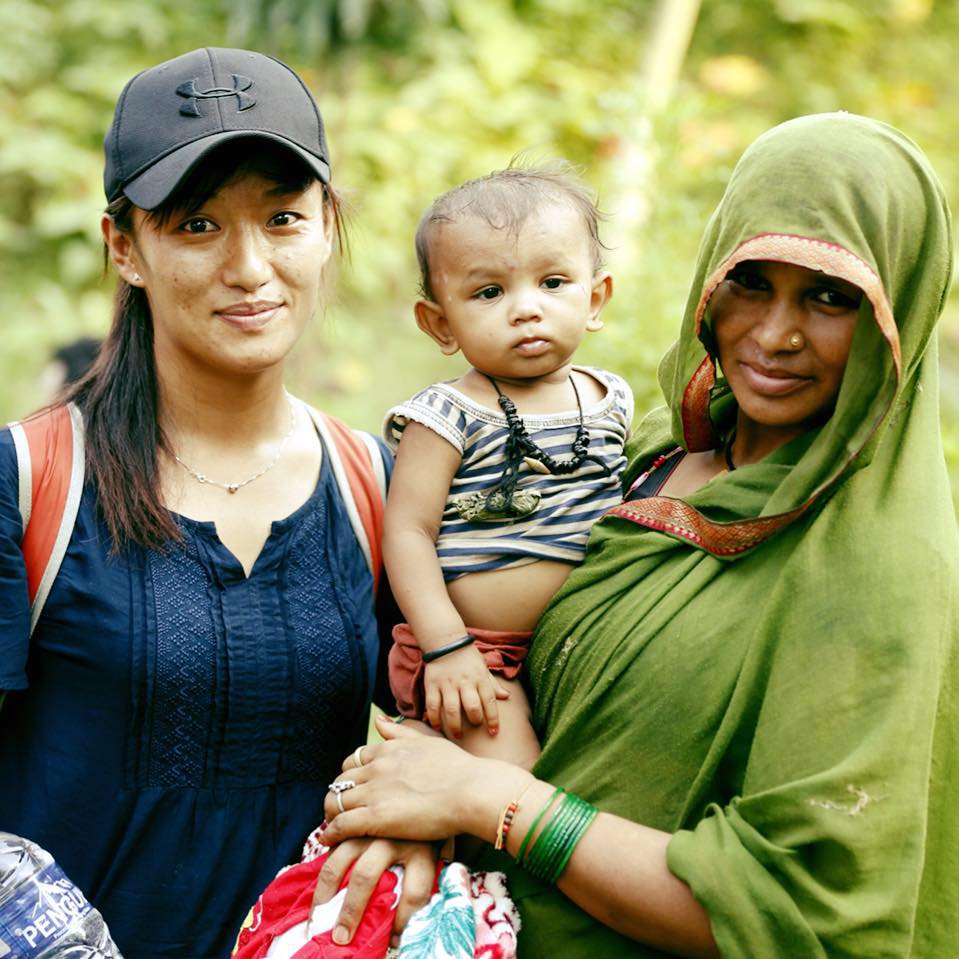
your effort is helping to minimize the distance between different types of people?
Like I said before, to some extent my effort is helping a few to ease their struggle, but there is still a lot more to do. Helping each other builds strong sense of belongingness. It also spreads the trust that no one is alone in this world. It ultimately makes the society a better place to live.
Social work requires a lot of independent thinking and initiative with minimal supervision. It can be stressful and difficult at times. How do you handle the pressure? How it feels being an independent social worker and sustain for the long run? What keeps you going?
I think it’s the passion in me that has pushed me forward to do something bigger and better for people around me. Sometimes, it can be stressful, but the positivity the people I have helped and their blessings have kept me going. And every time I feel low, I remember the faces of those people whom I helped.
In the context of Nepal where many people are in social work just to show off, how do you differentiate yourself from them? What are your greatest strengths? What do you think are the problems in the social context of Nepal? How can we improve that environment?
I’ve seen a few on social media, they catch a subject and post it online. And I’ve also seen them not lasting long. It’s been more than a decade of me being in this field. People know my work, they trust me and they donate. If they hadn’t trusted me, I wouldn’t have been in the place where I am today. I think the problem is that a lot of people want to help each other, but they don’t know how. If we can be more of a medium, then it would be helpful.
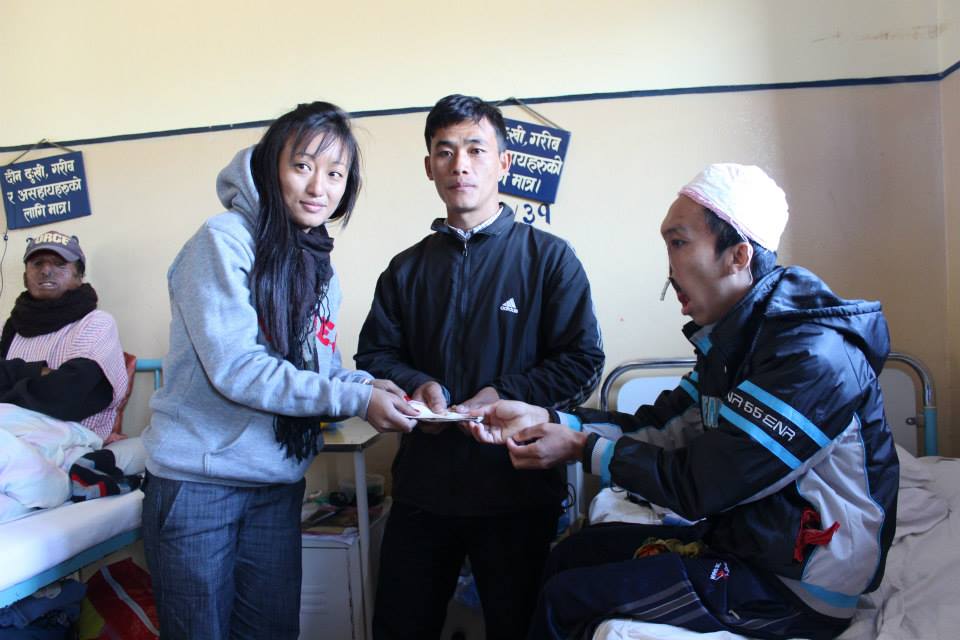
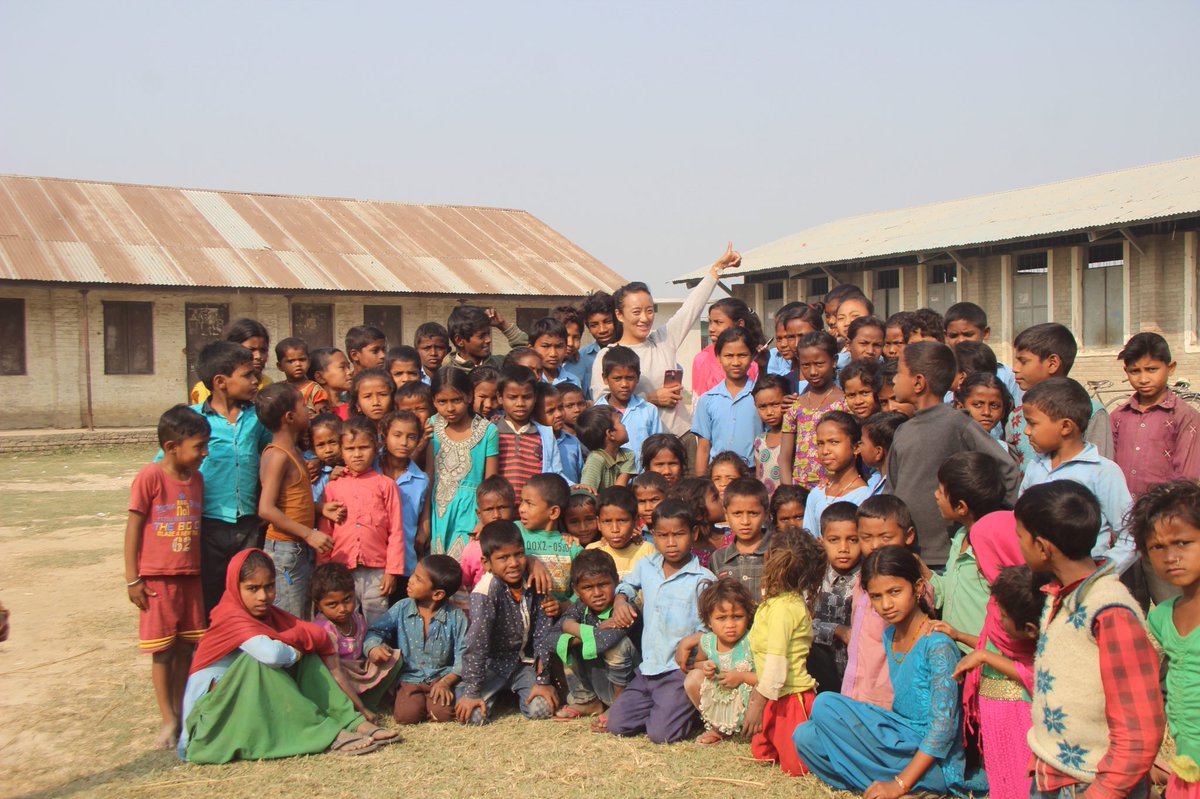
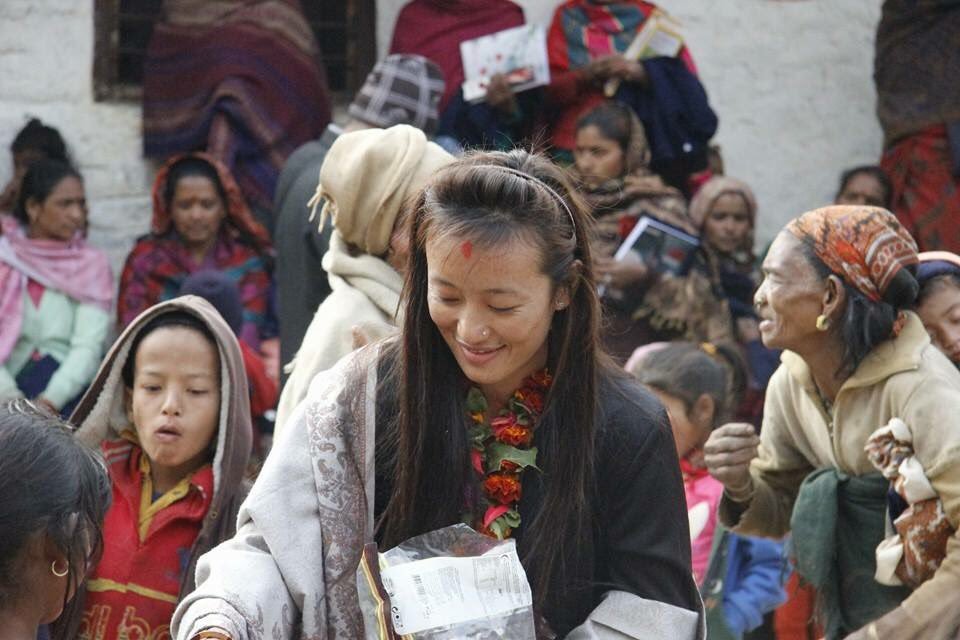
How is the culture of giving in Nepal and how this can be further promoted? What are your thoughts?
Though being economically not up to that higher level, Nepali people rich in hearts. People love to donate as much as they can whatever amount they are earning. We are happy and proud to be a mediator to transfer their giving hands into assistant materials and reach to the people who need that desperately. When we post on Facebook asking people for the donation, their response is so overwhelming. They respond as if they are helping their own relatives. And we are very much serious about the transparency. We don’t only collect money from them but also their trust and humanity. So, keeping everything open and transparent is important. This also helps us reach to other potential donors.
What do you think of youth leadership? In your opinion, how youths can be the part of the social change? Where should they give emphasis on?
I think leadership is an initiative to be the change and change should come from yourself. For the better future of our country, the government should work with the young generation and listen to them more.
Lastly, what suggestions you want to give to other young people like you who also want to be like you? Or to those who are studying sociology, how can they make themselves useful in society?
If you really want to be part of something big there is nothing that is going to hold you back, you just need to go for it. But, if you’re in this field just to show others, trust me it won’t last. Do something out of passion and interest. It’s not that hard to gain fame, but to maintain the status after gaining the fame is not that easy. You need to find out your quality and interest.
